- Home
- Francine Mathews
Blown Page 7
Blown Read online
Page 7
“Just passing through, really.” He closed his eyes, a tide of weakness tugging him into the shallows. “A hiking tour all on my own. Tony Bloody Blair did for my job six months back, so I put London behind me and set off for the Continent. A good pair of shoes, a good backpack, and the world’s your oyster. Budapest last month, Poland before that. I’m working my way home to the white cliffs of Dover now, if you must know, and after this unfortunate experience I’m liable to hasten my trip.”
“Come on.” Ernst was speaking German now and he seized Klaus’s elbow. “We’re wasting our time. We should have nabbed the wife.”
“Want him dead?”
A fractional pause, as the brains of the operation considered his alternatives.
Then Eric was lifted, wobbly as an old mattress, and dragged out of the room.
Chapter 13
THE WHITE HOUSE, 2:07 A.M.
Adele Bigelow raised her head from the pillow. A light shone from the master bedroom’s walk-in closet, and the glare hurt her eyes. She felt blindly for the wristwatch resting on her discarded book and saw that it was the middle of the night. Jack had never bothered to come to bed. Like a bell sounding in deep water, memory returned sharply. Chemical attack. Hundreds dying. A riot in the streets of Spring Valley.
“Jack?” she called as she threw back the covers. “Honey?”
The closet door swung slowly open and there he was, backlit against the vivid light: an aging man with a powerful frame, stooped over the golf magazine cupped in his hands. He was sitting on the bench he used to pull on cowboy boots. His body was curved like a question mark, something in its lines too defeated and weary, and Adele thought, Oh, Sophie. Why did you have to die?
She had liked the vice president. Liked the easy humor and intelligence the woman mustered through five months of grueling campaigning after the nomination was secured, liked the raw emotion that surged beneath the carefully controlled surface. They were different people, of course—Adele hated the White House limelight, loathed politics, and survived by effacing herself completely in public—but at least Sophie had been a woman she could trust. She had no agenda beyond the work meted out to her in the Old Executive Office Building; no rivalry with the First Lady she nurtured in back halls. They were both mothers of sons—had that, at least, in common—and both tried to shield Jack Bigelow from the savagery of the press or his own Cabinet. Now Sophie was gone.
Jack might stand before the microphones and declare that the United States would never be held hostage by terrorist thugs; he could celebrate the courage of Sophie Payne or Caroline Carmichael and pose while he handed out medals—but there was still the annoying American tendency to need somebody to blame. It was all too possible, Adele knew, that Sophie’s murder would scuttle Jack’s second term—and as much as she longed to retire to Montana, four years in the White House would never be enough for her husband.
“Didn’t mean to wake you,” he said now. “Got a meeting in a couple of minutes.”
He could have waited in his office or any one of the sitting rooms that ran the length of the private part of the residence; but he’d retreated to the bedroom closet. Poor Jack.
“A meeting at this hour of the night?”
“Dare Atwood’s been killed.”
She sank back against the pillows, listening to the surge in her own heartbeat, the brutal words. Darien Atwood, dead. She hardly knew the DCI—the Iron Maiden look had always intimidated her—but then she remembered a dinner at the woman’s house, before they were voted into power: old bricks and glossy black shutters in Georgetown. The musty smell of boxwood.
“How?”
“Shot in her own living room. Sniper.”
“And are you next?” she demanded querulously. “Are they killing all of us, one by one?”
“Addy. You know I’m well protected.”
“I know nothing about it,” she whispered.
Jack glanced away. The glossy magazine slipped from his knees to the closet floor, a sprawl of neatly clad men chipping as though their lives depended on it. “I’ll bring you coffee. Seven-thirty. You’ve got the hairdresser at nine.”
She rolled away from him, her back to the door. The least she could do was stay awake. And listen for gunfire in the distance.
It was Shephard who buttoned Caroline’s brown wool bomber jacket over her blouse to hide the bloodstains, his hands gentle on her wounded shoulder. Cuddy was busy discussing Alastair, the dog, with one of the cops—trying to convince the man that the Airedale didn’t belong in the D.C. pound, that Cuddy would be happy to take charge of Allie until Dare’s next of kin arrived. Tom could feel something inside Caroline collapse as they stood alone on the floodlit brick walkway that led to the street. Her chin sank to her chest and her frame seemed to buckle. He folded her close, his heart wildly beating.
“I’m sorry,” he muttered, his mouth in her hair. “I’m so sorry.” When what he wanted to say was, I love you. Jesus Christ I love you Carrie and you could’ve died tonight—
She released him abruptly and swept her hand over her eyes. “Fuck,” she said tiredly. “I’m so bad at death. The fucking unfairness of it all.”
“Fairness,” he echoed. “It could have been you tonight, you realize that? He could have shattered your head in the split second after he shot Dare’s.”
“I wish he had.”
“Don’t say that.” He shook her slightly, agonized and furious at once. “Do you know what it feels like? To care this much about a woman with a death wish?”
“Tom—” She stared past him, a goaded look on her face. “I don’t want you to feel. I don’t want to be responsible for anybody else’s heart.”
“Why? Because your husband was killed three years ago, Carrie? My wife died, too.”
“It’s not the same.” She laughed harshly. “Christ, is it not the same.”
“Because Jen wasn’t a terrorist martyr? Bullshit. Bullshit.” He spun away from her, trench coat flapping. It was stupid of him to force the issue this way, two o’clock in the morning and Dare’s blood still drying on her clothes, but he couldn’t help it. “You can’t go into the grave with them, you know. You’ve got to keep living.”
Her lips parted as though she might tell him to calm down or go fuck himself, but instead all she said was, “We’ve got to get to the White House. Will you drive?”
He glanced back and saw Cuddy emerging from the door, the dog with bandaged paws on a short lead. “I’ve got Caroline,” he called in his most efficient voice, no hint of high drama in his words. “You bring her car, okay?”
And to Caroline, carefully impersonal as he opened her passenger door: “I don’t know how we explain the mutt to White House Security.”
The group of people assembled outside the Oval Office had dispensed with chitchat. All were too busy composing briefing points in their heads to even glance at each other. Al Tomlinson was head of the FBI; he’d worn a blue blazer and tie for the occasion. Matthew Finch, the President’s Chief of Staff and oldest friend, was in a bulky sweater and corduroys. Cory Rinehart, who’d been Dare’s deputy for six months and would probably be forced to take over the intelligence community helm until Bigelow could appoint a successor, had worn a dark gray suit, as though he fully expected to move seamlessly from the White House to Payne’s funeral at Arlington. Nobody liked Rinehart at Langley, but he’d risen through the hierarchy on a steady cocktail of politics, ambition, and ass-kissing. Caroline felt decidedly outclassed in this group, still wearing the jeans she’d thrown on earlier that evening and a lipstick she’d managed to scrounge from her purse. Her bomber jacket masked the bloodstains on her blouse, and nobody’d urged her to take it off and stay awhile. But then, she was only here as an interested observer and unwilling target of homegrown terrorists, whenever anybody chose to remember that fact. She was a referent—refer-AUNT, with heavy emphasis on the final syllable—as they persisted in saying out at the Agency. An authority to whom the room could defer whenever co
nversation lagged.
Tom and Cuddy were muttering to one another in lowered tones, Tom scowling and Cuddy fingering the bridge of his glasses. He’d left the Airedale sound asleep on the backseat of Caroline’s car with the Secret Service to check on him. Tom had mastered his unruly emotions during the brief ride down Pennsylvania Avenue, saying nothing until he asked for Caroline’s badge at the White House gate; and maybe he’d never force her to face the truth again. Maybe she could go on pretending that his whole heart wasn’t in his eyes when he looked at her. That she didn’t yearn for the comfort of his hands. Shephard was nothing like Eric Carmichael. He’d never desert her without a word, send her alone into death, make her knees weak and her skin burn at the touch of his fingertip. He would simply take care of her for the rest of her life. The idea was overwhelming; it felt like sleep at the end of an insomniac year. And they call this betrayal?
She was fighting the impulse to cross the hallway and blurt out the truth—tell him everything he didn’t know about Eric and the past few weeks in a headlong apology and confession that would ensure Tom Shephard never looked at her again—but at that moment the President walked swiftly down the corridor toward them and she was forced to pay attention. Bigelow, she saw to her surprise, was also wearing jeans.
“Good evening, Mr. President,” the group chorused dutifully, although it should have been good morning; only Matthew Finch stepped forward and reached a hand to Bigelow’s shoulder. They all waited until the two men walked toward the President’s desk before following them through the door.
There was a small conference table here and a larger one in the Cabinet room adjoining, but Finch had taken a wing chair and Tomlinson another, so the rest disposed themselves in comfort. Bigelow kicked his chair back and put his boots up on the shining surface of the desk. He’s not really relaxed, Caroline thought with the reflexive habit of the leadership analyst. He’s just going through the motions, and hoping it helps. Does he own that desk? Or does it pass, like the room, to his successor?
“Well, Matt? What’ve we got?”
“Eight hundred thirty-six people checked into hospitals at last count,” Finch replied with a glance at his notes, “and Director Atwood murdered at home.”
“I know that,” Bigelow retorted impatiently. “Let’s not waste time kicking the barn door closed on the horse’s ass. I’m angry as hell about poor Dare—liked and respected her. She did a damn fine job over in McLean and we’re all the poorer for her loss.”
Cory Rinehart opened his mouth to say something in acknowledgment, but Bigelow’s attention was already elsewhere.
“We’re not sitting here at two A.M. to weep for the DCI. We’ve got a nutcase on the loose. I want to know what we’re going to do about it. Al?”
The FBI director edged forward on his chair and clasped his hands soulfully between his knees. “We think this is a well-planned and executed campaign of revenge for the destruction of 30 April in Europe.”
“You seriously think anybody survived that raid last week?”
“It seems clear somebody did. The letter to the Washington Post—”
Bigelow dismissed Al Tomlinson with a glare. “Barn door,” he said. “Horse’s ass. Ms. Carmichael—you witnessed the raid on 30 April. Think anybody survived it?”
“Just me, sir. And Jozsef Krucevic.”
“No boy in a hospital bed is spiking the nation’s punch bowl with chem-bio agents. So who is?”
Cory Rinehart shifted restively in his chair, and despite her misery and exhaustion and the lives she’d failed to save, Caroline felt the ghost of a smile pricking her lips. Rinehart might be Acting Director, but she—Caroline—was the Referent. Life and soul of the President’s party.
“According to one of our sources, 30 April had agents in place in Mrs. Payne’s household well before the kidnapping,” Caroline told Jack Bigelow. “Presumably they’re still active, sir. That suggests a Washington-area cell with links to 30 April abroad.”
“Americans?”
She glanced sidelong at Tom Shephard. “That’s correct.”
“Just sitting tight over there, off Mass Ave? Waiting for Sophie Payne’s replacement to move into the Observatory?” He thrust his feet to the floor and stood up restlessly. Took a turn before the window. It was floodlit at night; the rose garden outside looked for all the world like the exercise ground of a maximum-security prison.
“Why the hell didn’t you mention an American cell before, Ms. Carmichael?”
“We only learned of it tonight, sir.”
“It’s also a matter of jurisdiction, Mr. President,” Cuddy Wilmot added. “The CIA does not operate—”
“—against American citizens on American soil,” Bigelow intoned wearily. “I know. But are these kooks who came from abroad? Are they Central European neo-Nazis embedded in our home turf, waiting for a reason to kick some American ass?”
“No,” Shephard said.
Bigelow stared at him. “You. You’re the Bureau guy. One who was in Berlin. Brought Soph’s body back. Right?”
“Right.”
“Tom Shephard is currently acting as chief of our 30 April Task Force,” Tomlinson supplied helpfully. “Before he went to Berlin, he was Deputy Chief of Domestic Terrorism.”
“Good enough,” the President said dryly. “So what kind of terrorist kills their own, Tom? Answer me that. What kind of guy knowingly takes out nearly a thousand Americans just like himself, entirely at random, for the fucking hell of it?”
“Timothy McVeigh,” Shephard said quietly. “Who blew up the Alfred P. Murrah Building in Oklahoma City a few years back. Our ricin killer mentioned him in his first letter to the press—and his second. We received this half an hour ago, sir.”
He handed a piece of paper to Jack Bigelow. Caroline already knew the words by heart.
Thirty April has struck a blow for justice with the execution of Darien Atwood for her numberless crimes against the American people. True Citizens throughout this great land need no longer cringe beneath the jackboot of government spies who harass and terrorize our every move. Jack Bigelow’s puppet is dead. Timothy McVeigh is avenged. More of the Zoggite minions are scheduled for the firing squad in coming days. Now is the hour to take to the streets. The Leader is gone but the Faithful will achieve his vision. The End Times are at hand.
Bigelow glanced up. “What kind of crap is this?”
“It’s the calling card of the American patriot movement, Mr. President, which some people estimate at nearly twenty million strong.”
“Patriot movement? What the hell is that?”
Shephard’s weathered face was virtually expressionless, but Caroline alone knew he had no patience for the ignorance of these people he served, these people he’d warned, who hadn’t bothered to listen until voters were dying by the hundreds in the streets of Washington. Tom’s anger ran deep and straight to his gut, and when he chose he could lash out with a ferocity that was frightening; but Caroline saw that at this critical moment his emotions were coiled tight as the safety on an automatic. The conversation was important to Tom. He would not waste his best opportunity in years to focus the President’s attention.
“The patriot movement—the True Citizens, they call themselves—believe that this nation will be destroyed in a final apocalyptic race war pitting White Christians against everybody else,” he said carefully. “They call it the End Times, and they hold training camps all over the country designed to equip their faithful to survive. Flip a True Citizen on his back, and you’ll find a 30 April sympathizer, sir. They’re fellow travelers.”
Bigelow frowned. “Are you talking about militia groups?”
“Partly. The average True Citizen is white, male, in his mid-thirties, single, and highly skilled; he hates gun control first and foremost and everyone who’s different from himself in descending order after that. The militia movement recruits heavily among that population. But I’m also talking about people like William Pierce—a former physics profes
sor from West Virginia. Highly educated, charismatic, and an ardent worshipper of Adolf Hitler.”
Bigelow raised a quizzical eyebrow. “Never heard of him.”
“No. Pierce founded the National Alliance, a neo-Nazi group that worked and played on his three-hundred-and-fifty-acre compound outside Hillsboro. He broadcast hate radio there and ran his White Supremacist record label, Resistance Records. He also wrote The Turner Diaries.”
“Now that I recognize. Banned book, right?”
“In a manner of speaking.” Al Tomlinson shifted uncomfortably. “It’s an underground novel about the final race war in America. Required reading now at Quantico for our trainees. Pierce blows up Bureau Headquarters in the book—and a copy was found in McVeigh’s car. He got the recipe for his fertilizer and fuel oil bomb from it. The Turner Diaries has inspired a lot of violence, Mr. President, over the past few years. Particularly against blacks and Jews.”
“And you think it gave our ricin boy ideas?”
“Possibly,” Tom Shephard said. “If not Pierce’s book, then certainly the movement he represents. True Citizens believe the U.S. government is a bunch of puppets whose strings are pulled by Jews and foreigners. That most elected politicians operate in violation of the Constitution, which True Citizens say gives every one of us the right to flout laws we don’t like. True Citizens refuse to pay federal taxes. They hate programs that foster diversity and tolerance—like public schools—and usually keep their kids at home, where they can be taught to think as narrowly as their parents. They’re often aligned with fundamentalist Christian churches that regard non-Christians as the devil’s spawn. True Citizens are an armed resistance operation quietly spreading through the heart of America. You and I, Mr. President, are the kind of people it’s their duty to kill.”
Bigelow might have dismissed all this as the loose screed of AM radio, but the rapt attention of those listening around the room stilled any impulse to quip. He turned to the FBI director. “The Bureau is watching these jokers, I suppose?”

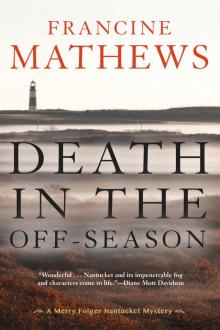 Death in the Off-Season
Death in the Off-Season Death in Rough Water
Death in Rough Water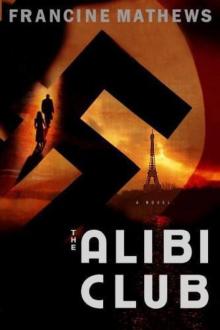 The Alibi Club
The Alibi Club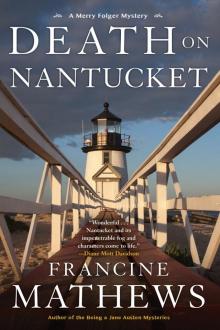 Death of a Wharf Rat
Death of a Wharf Rat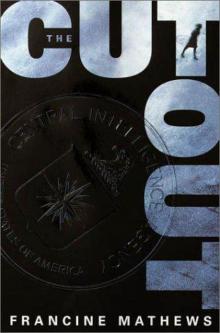 The Cutout
The Cutout The Secret Agent
The Secret Agent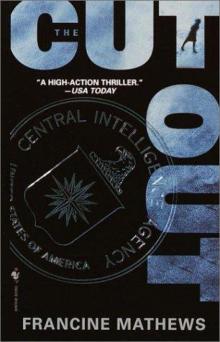 The Cutout cc-1
The Cutout cc-1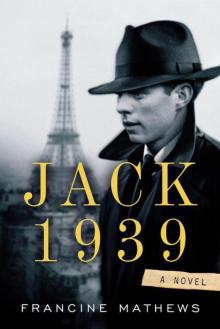 Jack 1939
Jack 1939 Death in a Cold Hard Light
Death in a Cold Hard Light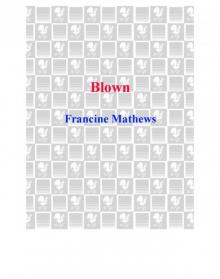 Blown
Blown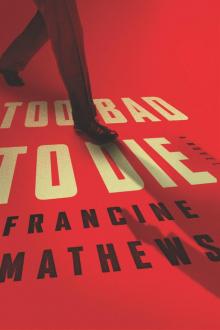 Too Bad to Die
Too Bad to Die